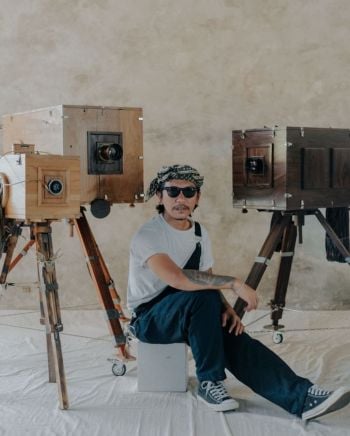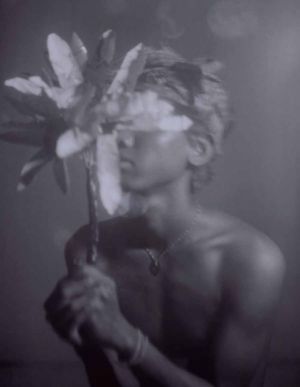A photography graduate from the Indonesian Art Institute (ISI), Denpasar.
Balinese photographer I Gusti Agung Wijaya Utama S. Sn has a unique vision to raise awareness of the past through distinct, eye-catching fine art and reconstruction portrait photographs. Gung Ama, as he is known, does not use digital technology, but a process from the past; the Afghan Box Camera. As the name suggests, the camera is linked with Afghanistan, being first used in villages by travelling photographers before there were any photography studios.
“Digital technology and the modern mindset desiring immediate outcomes and satisfaction are impacting upon the art of photography and contributing to the erosion of traditional Balinese values,” said Gung Ama, born in Batubulan Gianyar in 1988, whose interest is photography began in 2006. “Nowadays, smartphones equipped with sophisticated cameras are affordable and an essential modern icon and tool. Moreover, social media and selfies dramatically impact lifestyles and alter our concept of identity. By recreating the nostalgia and curiosity of old Bali through manual, handmade photos, my objective is to reignite cultural memory while inspiring awareness and discussion among all the generations.”
“My photography reflects the growing sentiment within the Balinese seeking a return to the wisdom of the past,” Gung Ama said. “In the face of modernity and the homogenisation of cultures, I believe it is important to celebrate and embrace cultural icons to help reinforce our identity. In addition, it’s essential to be reminded of our forefather’s messages, culture lost and the wisdom of the past.”
Article by Richard Horstman



Aktifkan pemuatan ulang komentar otomatis